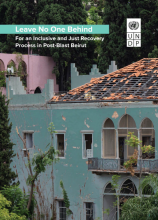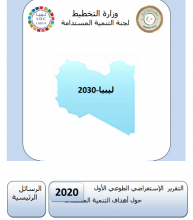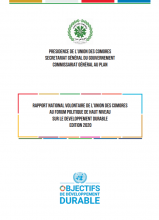Governance
The mechanisms, processes and institutions through which resources are managed and delivered largely affect the outcome of national sustainable development plans at many levels. It is difficult to offer an overall assessment of the status of good governance for the Arab region, but different measurement initiatives by various credible institutions contribute to shedding light on economic and corporate governance.
With regards to economic governance, some Arab countries have made significant strides in making their economies more open and competitive and in adopting economic policies that contribute to stronger economies, whilst boosting investments.
Most notably, the Gulf Cooperation Council (GCC) countries have taken the lead at the regional level to enhance economic competitiveness. According to the Global Competitiveness Index (GCI), which assessed the competitiveness landscape of 140 economies in 2019, the United Arab Emirates, Qatar and Saudi Arabia ranked 25, 29 and 36, respectively, the highest at the regional level.[1] Despite the progress the region has made over the past decade in terms of infrastructure and technological readiness, due to heavy investments in transport and information and communication technologies (ICT), the region still lags behind advanced economies in terms of innovation, technological readiness, higher education and training and labor market efficiency.[2][3]
The United Arab Emirates and Qatar also outperform the Arab countries on the Index of Economic Freedom (2021), which is based on 4 pillars of economic freedom, namely the rule of law, government size, regulatory efficiency and open markets, scoring 76.9 and 72, respectively, out of 100 (most free). Remarkably, 13 out of 16 Arab countries scored above 70 on the tax burden, one of the 12 indicators of the index, indicating that these countries are free or mostly free from taxes usually imposed by governments.[4]
Meanwhile, as measured by the Ease of Doing Business Index (EODB), 16 Arab countries have witnessed an enhancement in their overall business environment between 2019 and 2020, except for Iraq, Lebanon, Libya, Somalia, Sudan and UAE. Howeveronly UAE out of 22 Arab countries have a starting business score higher than 80 in 2020, measured between 0 (worst performance) and 100 (best performance) through the number of procedures, time, cost and paid-in minimum capital requirement for a small to medium sized company to start up and formally operate.[5]
As for the Arab countries in Africa, Ibrahim index of African Governance of 2020 shows that Tunisia and Morocco register highest score of 59 out of 100 (best) for business environment index in 2019. While Morocco, Tunisia, and Egypt score highest in infrastructure index with 88.3, 82.1, and 80.0 respectively. With regard to Public Administration, Tunisia, Mauritania, and Morocco score the highest at 58.5, 53.4, and 52.8 respectively.[6]
In light of the multifaceted challenges that the region faces, enhancing the competitiveness of the economies of the Arab region economies necessitates enhancing government effectiveness and the business environment.
This overview has been drafted by the ADP team based on most available data as of April 2021.
Sources:
[1] In the Arab World Competitiveness report 2010, the performance is assessed for 13 Arab countries, including the United Arab Emirates, Qatar, Saudi Arabia, Bahrain, Kuwait, Oman, Jordan, Morocco, Algeria, Tunisia, Egypt, Lebanon and Mauritania.
[2] World Economic Forum and World Bank Group. 2018. The Arab World Competitiveness Report. [ONLINE] Available at: http://www3.weforum.org/docs/Arab-World-Competitiveness-Report-2018/AWCR%202018.0724_1342.pdf [Accessed 1 April 2021].
[3] World Economic Forum. 2019. The Global Competitiveness Report. [ONLINE] Available at http://www3.weforum.org/docs/WEF_TheGlobalCompetitivenessReport2019.pdf [Accessed 1 April 2021].
[4] Heritage Foundation. 2020. Index of Economic Freedom. [ONLINE] Available at: https://www.heritage.org/index/explore [Accessed 1 April 2021].
[5] The World Bank Group. 2020. Doing Business, Ease of Doing Business score. [ONLINE] Available at: https://www.doingbusiness.org/en/data/doing-business-score [Accessed 1 April 2021].
[6] Mo Ibrahim Foundation. 2018. Ibrahim Index of African Governance. [ONLINE] Available at: http://iiag.online/ [Accessed 1 April 2021].
Data Highlights
-
The United Arab Emirates, Qatar and Saudi Arabia ranked the highest at the regional level at 27, 30 and 39, respectively, and out of 140 economies.




